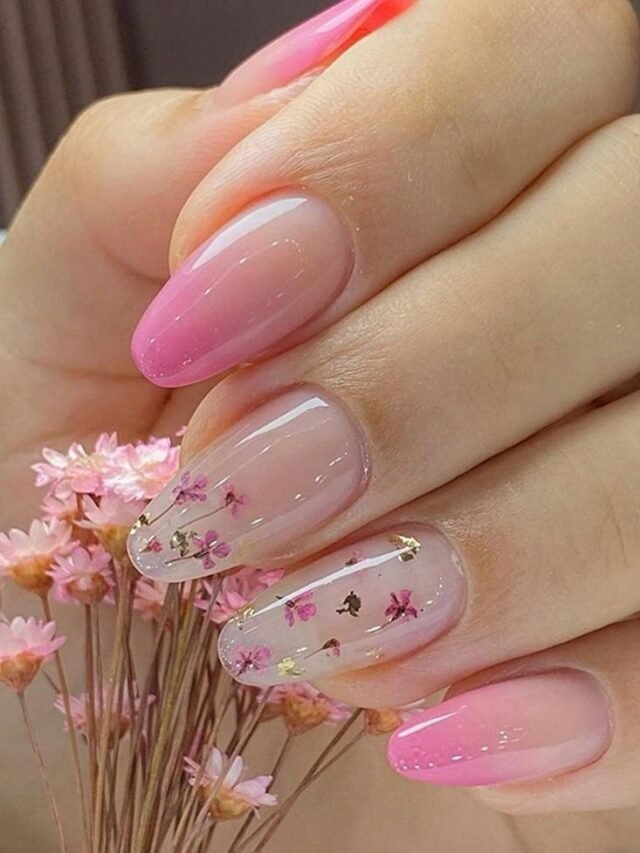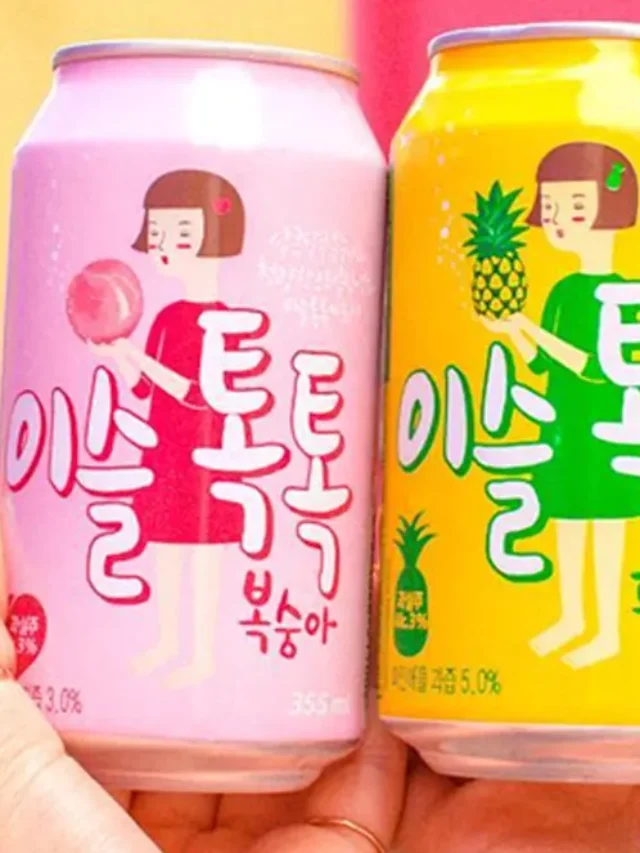Popular Korean Drinks that Aid in Weight Loss: A Comprehensive Guide
Introduction:
In recent years, Korean cuisine and beverages have gained international popularity not only for their delicious flavours but also for their potential health benefits. Among the various Korean beverages, there are several that are believed to aid in weight loss due to their unique ingredients and properties. In this comprehensive guide, we will explore 10 popular Korean drinks that are known to support weight loss efforts. From traditional teas to modern concoctions, these beverages offer a refreshing and healthy way to complement your weight loss journey.

Korean drinks that help in weight loss
Several Korean drinks are believed to have potential benefits for weight loss due to their ingredients and properties. Here are a few popular options:
- Green Tea: Widely consumed in Korea, green tea contains catechins, which are antioxidants that may help boost metabolism and promote fat burning.
- Barley Tea (Boricha): This caffeine-free tea is made from roasted barley and is often enjoyed cold or hot. It is low in calories and can help keep you hydrated, which may support weight loss efforts.
- Citron Tea (Yuja Cha): Made from citron fruit and honey, citron tea is rich in vitamin C and has a refreshing flavour. While it’s not a direct weight loss aid, it can be a healthy alternative to sugary beverages, helping to reduce calorie intake.
- Job’s Tears Tea (Yulmu Cha): Job’s tears are a type of grain that is often used in Korean cuisine and traditional medicine. Yulmu Cha made from Job’s tears is low in calories and contains dietary fibre, which can promote feelings of fullness and aid in digestion.
- Lotus Leaf Tea (Yeonip Cha): Lotus leaf tea is believed to have diuretic properties, which may help reduce water retention and bloating. While it’s not a long-term solution for weight loss, it can be used as a temporary measure to alleviate water weight.
- Ginseng Tea: Ginseng is a popular medicinal herb in Korea, known for its potential to boost energy and metabolism. Ginseng tea is often consumed for its health benefits, including its supposed ability to support weight loss efforts.
Remember, while these drinks may offer some benefits for weight loss, they are most effective when combined with a balanced diet and regular exercise. It’s also essential to consult with a healthcare professional before making significant changes to your diet or lifestyle, especially if you have any underlying health conditions.
You May Also Like :
- https://khabribaba.in/black-day-india/
- https://ahrefs.com/seo/glossary/dofollow-link#:~:text=A%20dofollow%20link%20is%20any,which%20influences%20the%20page%20rankings

Traditional Korean beverages :
In recent years, the beverage scene in South Korea has witnessed a surge in creativity and innovation, with a plethora of modern drinks captivating both locals and international enthusiasts alike. From artisanal coffee creations to innovative takes on traditional teas, modern Korean drinks blend the country’s rich culinary heritage with contemporary trends and global influences. In this exploration of modern Korean beverages, we’ll delve into some of the trendiest and most beloved drinks that have taken the country by storm.

- Bubble Tea (Boba Cha): A Global Phenomenon with a Korean Twist
- Cultural Significance and History: While bubble tea originated in Taiwan, it has become a beloved staple in South Korea’s vibrant cafe culture. This sweet and indulgent beverage features chewy tapioca pearls immersed in a base of milk tea, which can be customized with various flavours and toppings.
- Innovative Variations: Korean cafes have put their own spin on bubble tea, offering innovative variations such as fruit-flavoured teas, cheese foam toppings, and even savoury options like cheese tea. These creative twists cater to diverse tastes and preferences, making bubble tea a ubiquitous choice among Koreans of all ages.
- Cafes and Trends: Bubble tea cafes, both international chains and local establishments, dot the streets of South Korean cities, offering cosy environments for socializing and relaxation. Instagram-worthy presentations and seasonal flavour rotations contribute to the ever-evolving bubble tea trend.
- Aloe Vera Drinks: Refreshing Hydration with Health Benefits
- Cultural Significance and History: Aloe vera drinks have gained popularity in South Korea as refreshing beverages with purported health benefits. Known for its hydrating properties and potential to support digestion, aloe vera is often incorporated into bottled drinks available at convenience stores and supermarkets.
- Functional Ingredients: Modern aloe vera drinks often feature additional functional ingredients such as collagen, vitamins, and fruit extracts, catering to consumers’ growing interest in health and wellness. These enhanced formulations promise a range of benefits, from skin rejuvenation to immune support.
- Convenience and Accessibility: Packaged in convenient bottles or pouches, aloe vera drinks are readily available for on-the-go consumption, appealing to busy urbanites seeking convenient yet nourishing beverage options.
- Fruit Soju Cocktails: Fusion of Tradition and Trend
- Cultural Significance and History: Soju, a clear distilled spirit traditionally made from rice, has long been a staple in Korean drinking culture. In recent years, creative mixologists have elevated soju into trendy fruit cocktails, combining the spirit with fresh fruit juices, flavoured syrups, and colourful garnishes.
- Social Drinking Culture: Fruit soju cocktails are particularly popular among young adults and urban dwellers, who enjoy gathering at lively bars and lounges to savour these fruity libations in a convivial atmosphere. From watermelon soju to peach soju, the possibilities for flavour combinations are endless.
- Versatility and Customization: The versatility of soju allows for endless experimentation, inspiring bartenders to create new and exciting cocktail concoctions that cater to evolving taste preferences. Whether served frozen, on the rocks, or mixed with sparkling water, fruit soju cocktails offer a refreshing alternative to traditional alcoholic beverages.
- Cold Brew Coffee: Smooth and Satisfying Indulgence
- Cultural Significance and History: Coffee culture has flourished in South Korea, with a growing appreciation for speciality brews and artisanal cafes. Cold brew coffee, known for its smooth and mellow flavour profile, has become a popular choice among coffee aficionados seeking a refreshing caffeine fix.
- Artisanal Craftsmanship: Korean cafes take pride in their meticulous approach to cold brew coffee, carefully selecting high-quality beans and employing precise brewing techniques to extract optimal flavour. The result is a rich and nuanced beverage that can be enjoyed on its own or customized with milk, syrups, or other flavourings.
- Seasonal Offerings and Limited Editions: To cater to changing tastes and seasonal trends, cafes often introduce limited edition cold brew flavours inspired by seasonal ingredients or cultural festivities. These special offerings create excitement and anticipation among coffee enthusiasts, driving foot traffic and social media engagement.
- Sparkling Water with Unique Flavors: Refreshing and Vibrant
- Cultural Significance and History: Sparkling water has emerged as a popular alternative to sugary sodas and traditional soft drinks, appealing to health-conscious consumers looking for guilt-free refreshments. Korean brands have embraced this trend, offering a wide range of sparkling water options with unique flavours and packaging.
- Innovative Flavour Combinations: Korean sparkling water brands are known for their creative flavour combinations, ranging from classic citrus and berry varieties to more unconventional options like lychee mint and cucumber basil. These bold flavour profiles appeal to adventurous palates and add a playful twist to hydration.
- Convenience and Portability: Packaged in sleek cans or bottles, Korean sparkling water brands are convenient for on-the-go consumption, whether enjoyed solo or paired with meals and snacks. The effervescent bubbles and burst of flavour provide a satisfying sensory experience without the need for added sugars or artificial sweeteners.










Pingback: वैज्ञानिकों को मिला दुनिया का अब तक का सबसे बड़ा सांप
Great site!
When I originally commented I clicked the “Notify me when new comments are added” checkbox and now each time a comment is added I get four emails with the same comment. Is there any way you can remove me from that service? Bless you!
I found this very enlightening.
I appreciate how you broke down this complex topic into manageable pieces. Your clear explanations and real-life examples made it so much easier to understand.
Thank you for this comprehensive guide. The practical tips you’ve shared are going to be very useful for my work.
This is really well-researched.
I believe that avoiding prepared foods is a first step to lose weight. They can taste good, but ready-made foods possess very little nutritional value, making you try to eat more only to have enough electricity to get through the day. When you are constantly ingesting these foods, transferring to cereals and other complex carbohydrates will make you to have more energy while having less. Interesting blog post.
Please tell me more about this. May I ask you a question?
Please tell me more about your excellent articles
You’ve been great to me. Thank you!
Your articles are extremely helpful to me. Please provide more information!
Thanks for your help and for writing this post. It’s been great.
Thank you for being of assistance to me. I really loved this article.
Thank you for sharing this article with me. It helped me a lot and I love it.
The articles you write help me a lot and I like the topic
Thank You !!
Thank you for your articles. They are very helpful to me. Can you help me with something?
Please provide me with more details on the topic
Please tell me more about your excellent articles
If you are interested in reading suspenseful , mysterious and interesting story then please visit our website (storycorner.in) and share it with your friends.
This is a great example of how AI can be used to improve education and make learning more personalized and engaging. James Jernigan has some insightful videos on how AI can be used to create adaptive learning platforms, provide personalized feedback, and even tutor students. He’s a strong advocate for using AI to empower learners of all ages.
I’m so in love with this. You did a great job!!
Thank you for being of assistance to me. I really loved this article.
Please tell me more about your excellent articles
If you are interested in reading suspenseful , mysterious and interesting story then please visit our website (storycorner.in) and share it with your friends.
I have noticed that fees for online degree professionals tend to be an incredible value. Like a full Bachelors Degree in Communication with the University of Phoenix Online consists of 60 credits with $515/credit or $30,900. Also American Intercontinental University Online offers a Bachelors of Business Administration with a entire study course element of 180 units and a price of $30,560. Online learning has made getting your higher education degree so much easier because you could earn your degree through the comfort of your dwelling place and when you finish from office. Thanks for all the other tips I’ve learned through your web site.
I liked as much as you will receive performed right here. The sketch is attractive, your authored subject matter stylish. nonetheless, you command get bought an shakiness over that you would like be delivering the following. sick indisputably come more before once more since precisely the same nearly a lot incessantly within case you protect this hike.
very nice publish, i certainly love this web site, carry on it
Write more, thats all I have to say. Literally, it seems as though you relied on the video to make your point. You obviously know what youre talking about, why throw away your intelligence on just posting videos to your blog when you could be giving us something informative to read?
I haven抰 checked in here for some time as I thought it was getting boring, but the last few posts are great quality so I guess I抣l add you back to my everyday bloglist. You deserve it my friend 🙂
yes